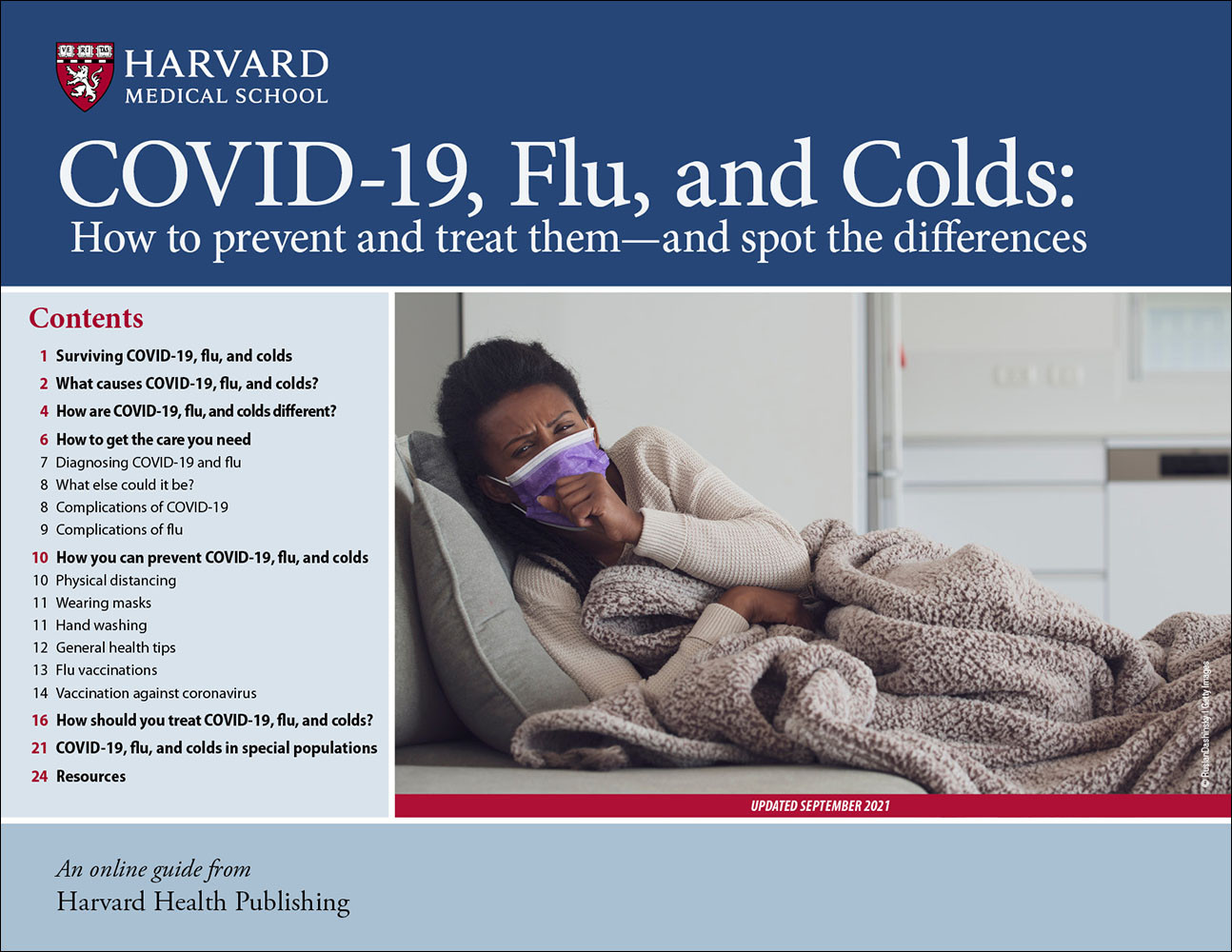Long COVID symptoms differ between the sexes
Research we're watching
- Reviewed by Toni Golen, MD, Editor in Chief, Harvard Women's Health Watch; Editorial Advisory Board Member, Harvard Health Publishing; Contributor

Women with long COVID — defined by the World Health Organization (WHO) as symptoms lasting 12 or more weeks beyond the initial illness — show a wider range of symptoms than men, according to a new study.
The study, published online March 25, 2022, by the Journal of Women's Health, tracked 223 patients (89 female, 134 male) who suffered severe cases of COVID-19 before vaccines were available or widespread. About 72% of all participants required hospitalization, with 17% needing a ventilator to breathe. Compared with men, women continued to report more symptoms in the weeks immediately following the initial illness. The women more often described persistent weakness, altered smell and taste, chest pain, palpitations, diarrhea, or muscle pain.
The researchers next examined those who developed long COVID. An average of five months after the initial infection, a larger proportion of the women with long COVID had lingering symptoms compared with the men (97% vs. 84%). These women were significantly more likely than the men to report weakness, shortness of breath, fatigue, chest pain, and palpitations.
Since this study looked only at people with severe COVID, it will be interesting to see if future research shows similar sex differences in the thousands of people with long COVID following mild initial symptoms.
Image: © Santiaga/Getty Images
About the Author

Maureen Salamon, Executive Editor, Harvard Women's Health Watch
About the Reviewer

Toni Golen, MD, Editor in Chief, Harvard Women's Health Watch; Editorial Advisory Board Member, Harvard Health Publishing; Contributor
Disclaimer:
As a service to our readers, Harvard Health Publishing provides access to our library of archived content. Please note the date of last review or update on all articles.
No content on this site, regardless of date, should ever be used as a substitute for direct medical advice from your doctor or other qualified clinician.
















